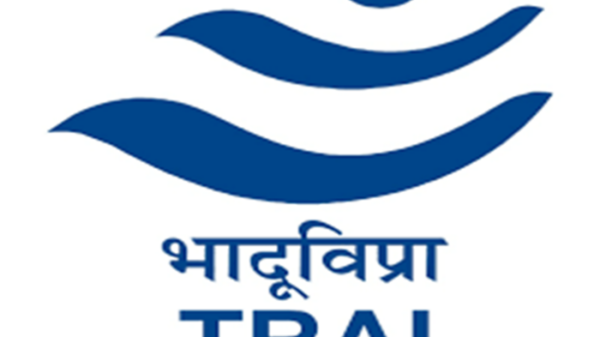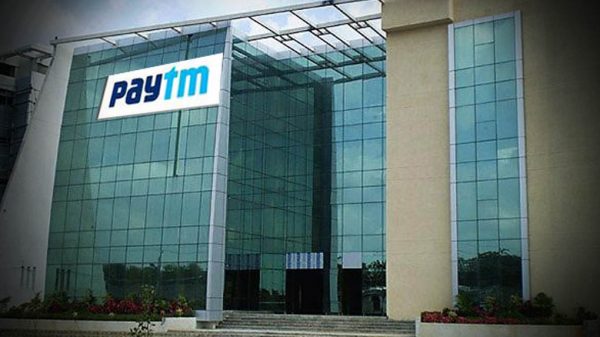“We are of the firm opinion that, notwithstanding any advancement of technologies, there is no justification whatsoever for allocating spectrum to industry verticals for operating private captive networks,” read a statement by the Cellular Operators Association of India (COAI) against demands of companies like Tata Consultancy Services (TCS) to run their own 5G networks.
The COAI’s concerns stem from the fact that TCS Chief Operating Officer N Ganapathy Subramaniam has asked the government to allocate 5G spectrum to private enterprises directly in an interview with Economic Times.
What is a private captive network: It is a local area network that uses 3GPP-based network spectrum, to create unified connectivity and a secure means of communication within a specific area, as per Business Standard. It is not open to the public and is private in nature used by a single entity.
COAI said that the telcos were “fully capable of providing all customised solutions in the most competitive and economic manner”. It added that the companies were providing such network configurations to private and public sector entities.
“Hence, there is no need to alienate spectrum directly to companies for captive private networks (PCN),” the statement averred.
COAI wrote that the telecom players are “both able and willing” to offer connectivity in terms of private networks as such networks are part of their commercial operations. It added that the spectrum should be procured in a commercial manner which is transparent.
Why it matters: COAI is one of the most influential bodies in the telecom sector. All of India’s major telecom companies (Jio, Airtel, and Vi) are members of COAI which lends heft to their opinion. The disagreement over private captive networks also pits some of India’s biggest companies against each other.
COAI calls for government intervention
In addition to a media statement, the COAI has also sent a letter to the Minister of Communications Ashwini Vaishnaw urging the state to intervene in the matter of private captive networks for 5G.
“If this critical issue is not immediately addressed, there really will be no business case for roll out of 5G networks,” read the letter which was reviewed by Medianama.
The letter was also marked to TRAI’s Chairman PD Vaghela, and Department of Telecommunications’ Secretary K. Rajaraman, along with members of the Digital Communications Commission (DCC).
Never miss out on important developments in tech policy, whether in India or across the world. Sign up for our morning newsletter, with a “Free Read of the Day”, to experience MediaNama in a whole new way.
Here are the arguments presented by the COAI to Vaishnaw:
No scope of revenue from retail segment: The COAI noted that there is “hardly any consequent revenue increment from the retail segment” in places where 5G has been rolled out in the world. It argued that revenue and efficiency enhancement can happen only from the enterprise segment. “This is further accentuated because India is a highly price sensitive market especially in the consumer segment,” read the letter. The COAI also reminded the government that telcos will be making heavy capital investments to provide 5G networks.
“If independent entities set up private captive networks with direct 5G spectrum allotment by DoT, the business case of TSPs (Telecom Service Providers) will get severely degraded. This will diminish the revenue so much that there will be no viable business case left for the TSPs and there will not remain any need for (rolling out) 5G networks by TSPs,” the COAI forewarned.
Telcos’ hope rests on the enterprise segment: “The new segment that would be benefitted by 5G services of the TSPs is the enterprise segment including manufacturing, logistics, education, hospitals, campuses, factories, etc,” the letter said. The COAI informed that telcos have conducted 5G trials for many of these use cases in the past year. The companies are hoping to target enterprises for revenue enhancement and to attain an increase in productivity and efficiency.
“If private captive networks for enterprises are set up independently by other entities then this would mean dramatically altering the industry dynamics and hurting the financial health of the industry and will strike at the very heart of the business case enumerated above,” the COAI complained.
Why is COAI against private captive networks?
- COAI believes that there is no need for separate private captive networks and the notion should be dispensed with given the availability of state-of-the-art telecommunication networks.
- PCNs can be detrimental to national security. The COAI did not elaborate on how or why these networks can be a threat.
- COAI cited the GSMA report titled ‘Mobile Networks for Industry Verticals: Spectrum Best Practice’ stating that businesses can benefit from telcos’ more extensive networks, more substantial spectrum assets, expertise and their lower cost base.
- The report warns that use of dedicated spectrum for verticals poses risks to mobile services as it will result in slower 5G networks and reduced coverage.
- They have requested the government to not reserve or “de-license any spectrum which has been identified or likely to be identified for use of IMT (International Mobile Telecommunications) for PCNs.
- The demands of a few companies for spectrum to be used industrially would not only cause huge loss to the exchequer but will also lead to sub-optimal utilisation of spectrum.
- The COAI explained that a judgement by the Supreme Court of India mandates that the state can allocate resources like spectrum only through a transparent auction process.
“It amounts to undue advantage to private commercial entities at the cost of government exchequer. The move will not only be technically uncalled for but also legally untenable,” COAI cautioned.
Private entities bat for state allocation
TCS told ET that it will not participate in the upcoming 5G auction as “roll-out obligations make buying airwaves directly financially unviable”. Subramaniam explained that a direct allocation will help enterprises to build private networks without any dependency on telcos and a greater degree of control of their data.
A recent op-ed in the ET by Faisal Kawoosa argued that 5G is driven by use cases. “There aren’t many off-the-shelf 5G use cases which an operator in its traditional orientation can simply deploy and distribute. There is a need to create these applications first, test them, optimise and finally deploy for end users to leverage. The telco isn’t adding much value here,” Kawoosa wrote in the ET.
What is TRAI’s opinion on the issue?
The TRAI sided with private enterprises in its recommendations as it suggested that the DoT should allow private enterprises to obtain spectrum on lease from Telecom Service Providers and establish their own isolated Captive Wireless Private Network.
“Further, the third option of leasing of spectrum is essential to meet the demand for private networks. The leasing option can be implemented now itself,” the regulatory body urged in its response to DoT.
The TRAI had earlier proposed four ways for meeting the demand of enterprises for private cellular networks:
- Network Slice from Telecom Service Provider’s PLMN (Public Land Mobile Network).
- Request TSPs to establish an independent isolated private network in enterprise’s premises using the TSP’s spectrum
- Obtain the spectrum on lease from TSPs and establish their own isolated network.
- Acquire spectrum directly from DoT
On the contrary, the DoT took a cautious approach and said that TRAI’s recommendations require further study of the ecosystem which covers demand assessment, business models, implementation framework, etc. “Therefore, these TRAI recommendations on Private Captive Networks may be considered at a later stage,” the department stated.
This post is released under a CC-BY-SA 4.0 license. Please feel free to republish on your site, with attribution and a link. Adaptation and rewriting, though allowed, should be true to the original.
Also read:
- Government to conduct 5G spectrum auctions in June: IT Minister
- IT Standing Committee pulls up DoT for slow 5G roll-out, urges government to reconsider high spectrum pricing
- Government should not ignore needs of satcom industry when drafting rules for 5G auctions: SIA report
- Why telecom companies are asking DoT to reduce 5G prices by 60-70%






























